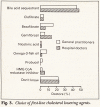Abstract
A questionnaire was sent to 457 physicians (328 general practitioners, 129 hospital doctors) to assess their attitudes to and their knowledge and practice of the management of raised serum cholesterol. Replies were returned by 206 (63%) general practitioners and 95 (74%) hospital doctors. While smoking, hypertension, diabetes mellitus and elevated total serum cholesterol were recognised as major risk factors for coronary heart disease, a significant number of respondents considered serum triglycerides to be less important. Both groups of physicians start dietary management at similar total serum cholesterol levels, but hospital doctors were more likely to use dietetic services. The two groups had a similar threshold for the addition of drug therapy. A bile acid sequestrant was the favoured first choice as a cholesterol lowering agent, although a wide variety of other drugs were also chosen. The screening of high risk patients was preferred to whole population and opportunistic screening for identifying hypercholesterolaemic individuals. The findings have important implications in the delivery of services to hypercholesterolaemic patients.
Full text
PDF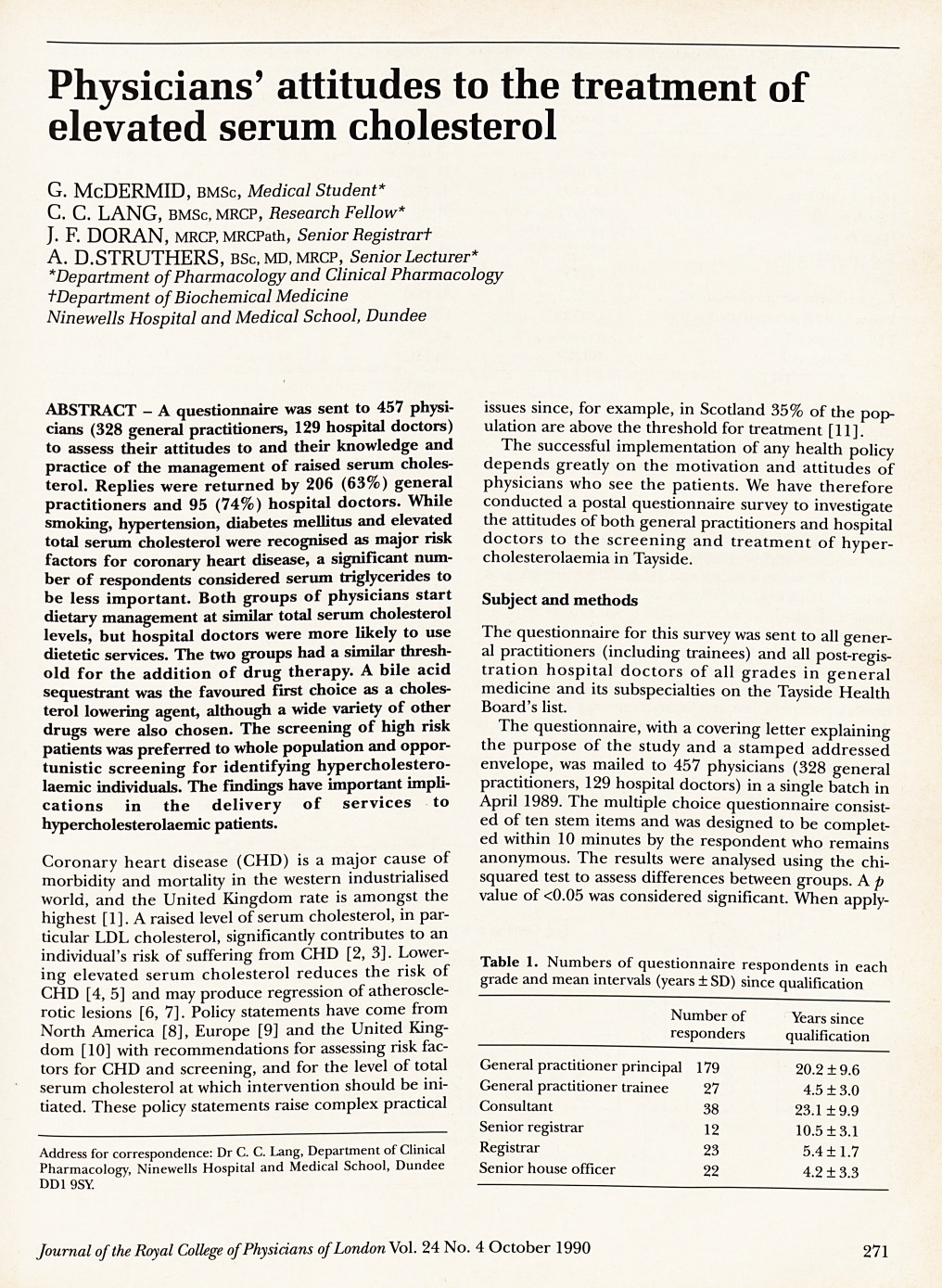
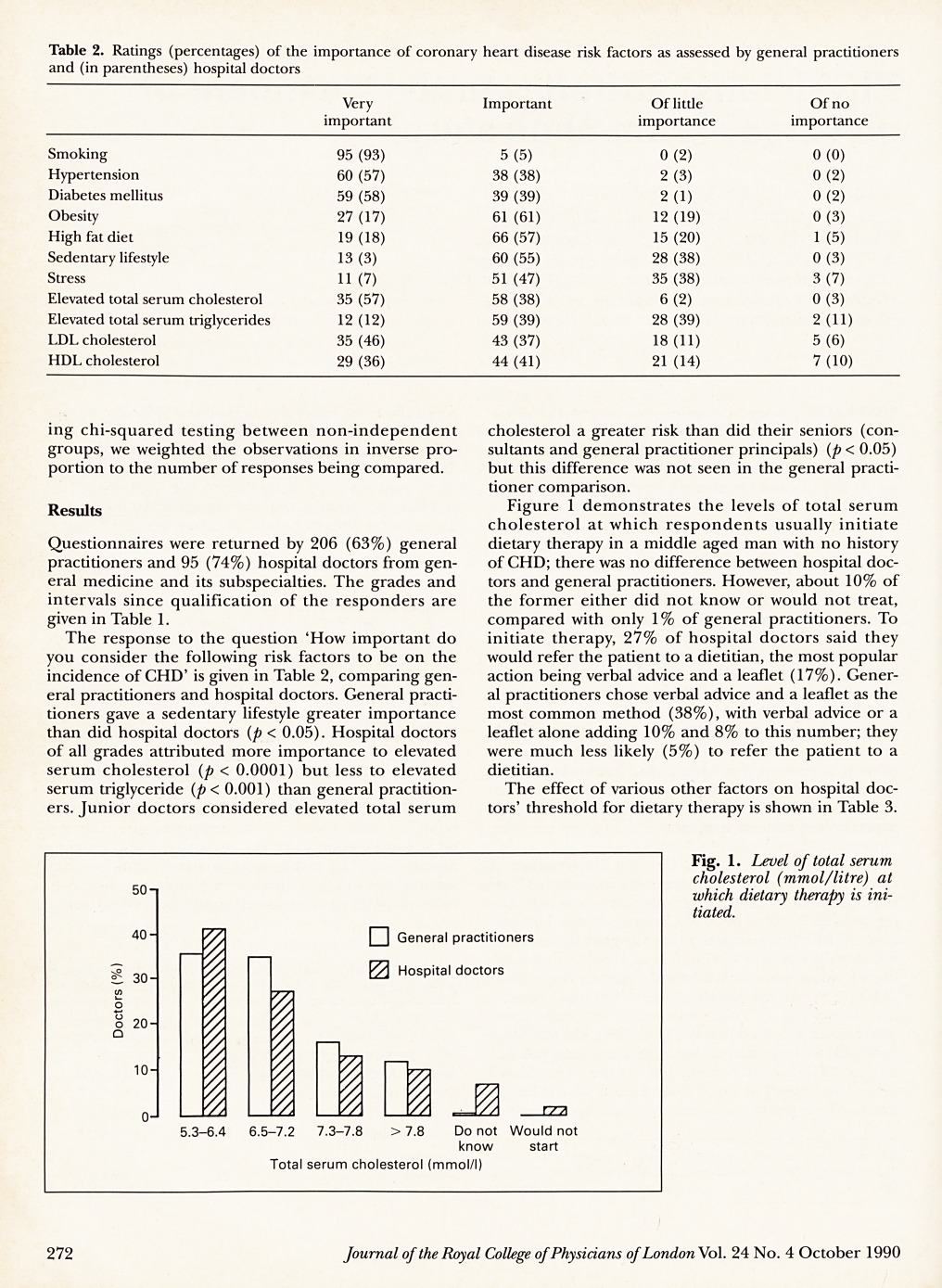
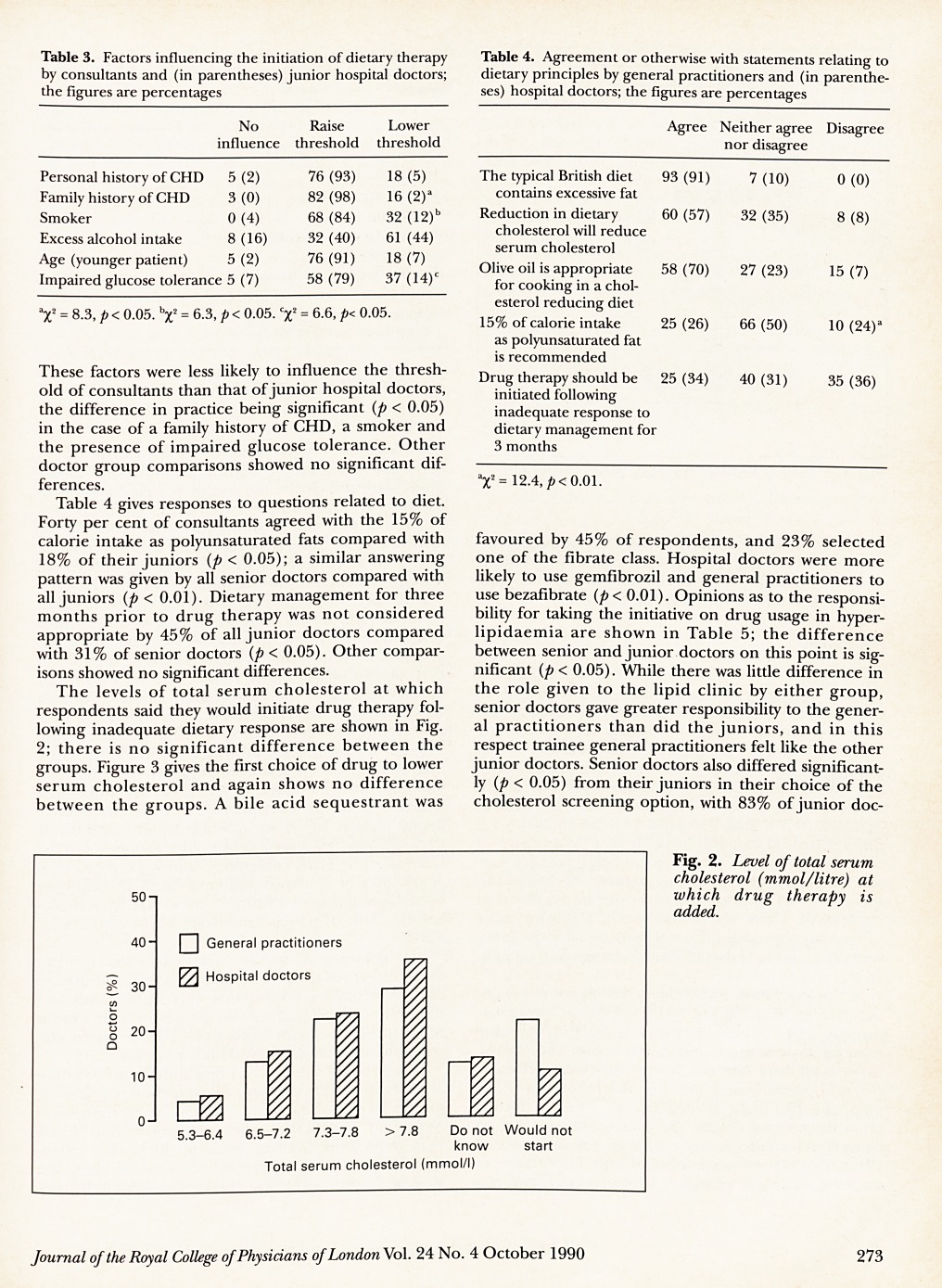
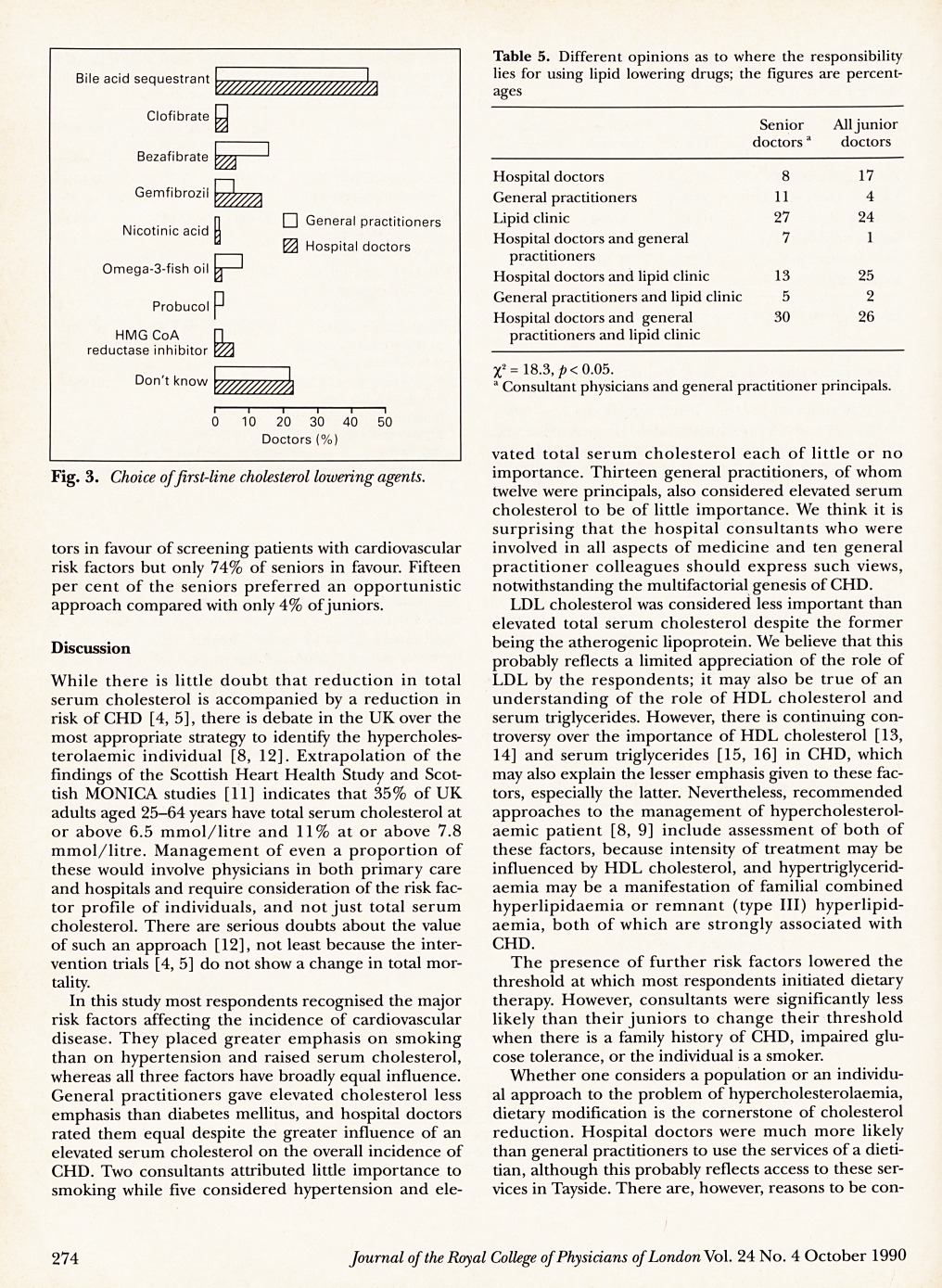
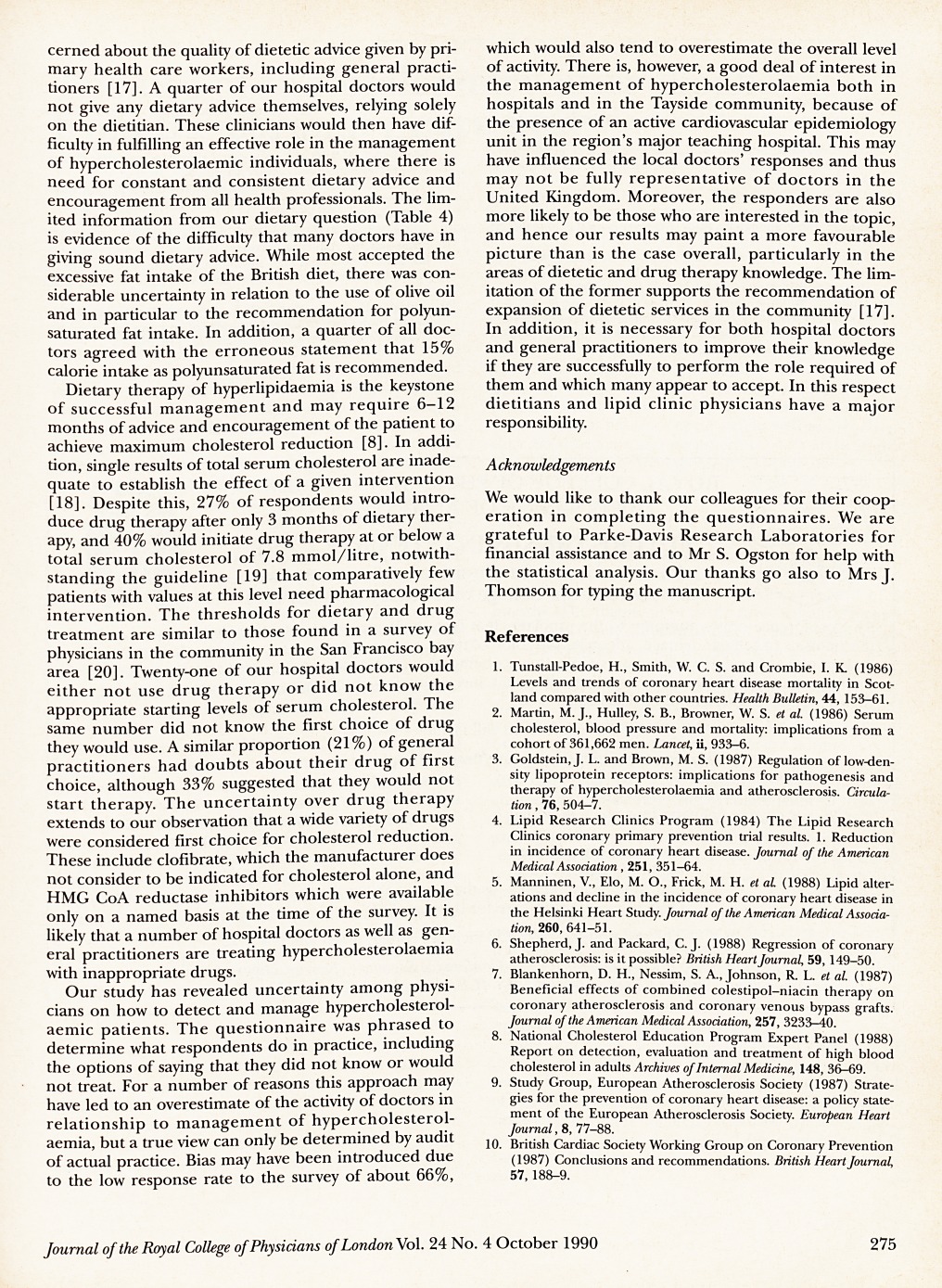
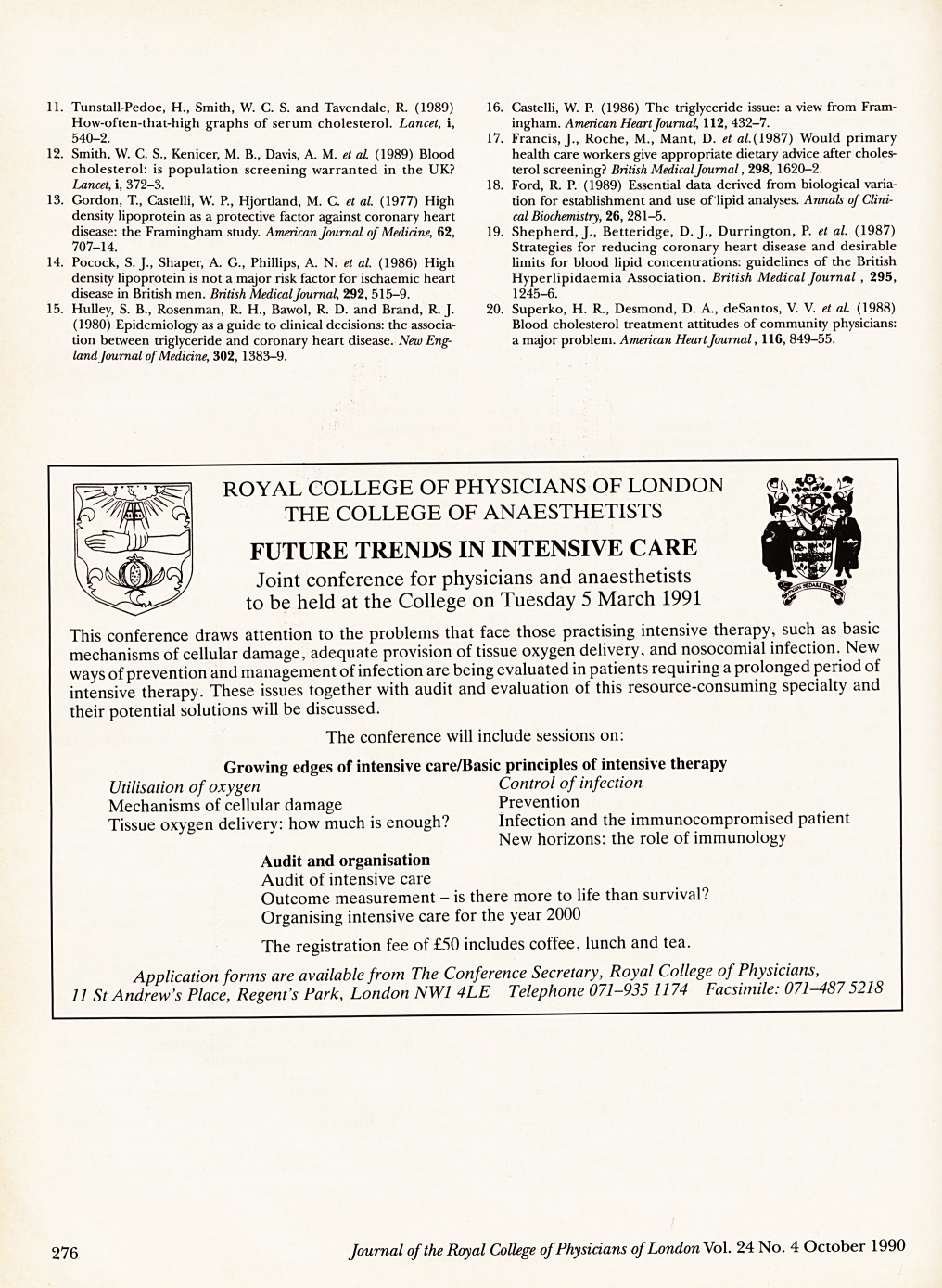
Contributor Information
G. McDermid, Medical Student Department of Pharmacology and Clinical Pharmacology Ninewells Hospital and Medical School, Dundee
C. C. Lang, Research Fellow Department of Pharmacology and Clinical Pharmacology Ninewells Hospital and Medical School, Dundee
J. F. Doran, Senior Registrar Department of Biochemical Medicine Ninewells Hospital and Medical School, Dundee
A. D. Struthers, Senior Lecturer Department of Pharmacology and Clinical Pharmacology Ninewells Hospital and Medical School, Dundee





